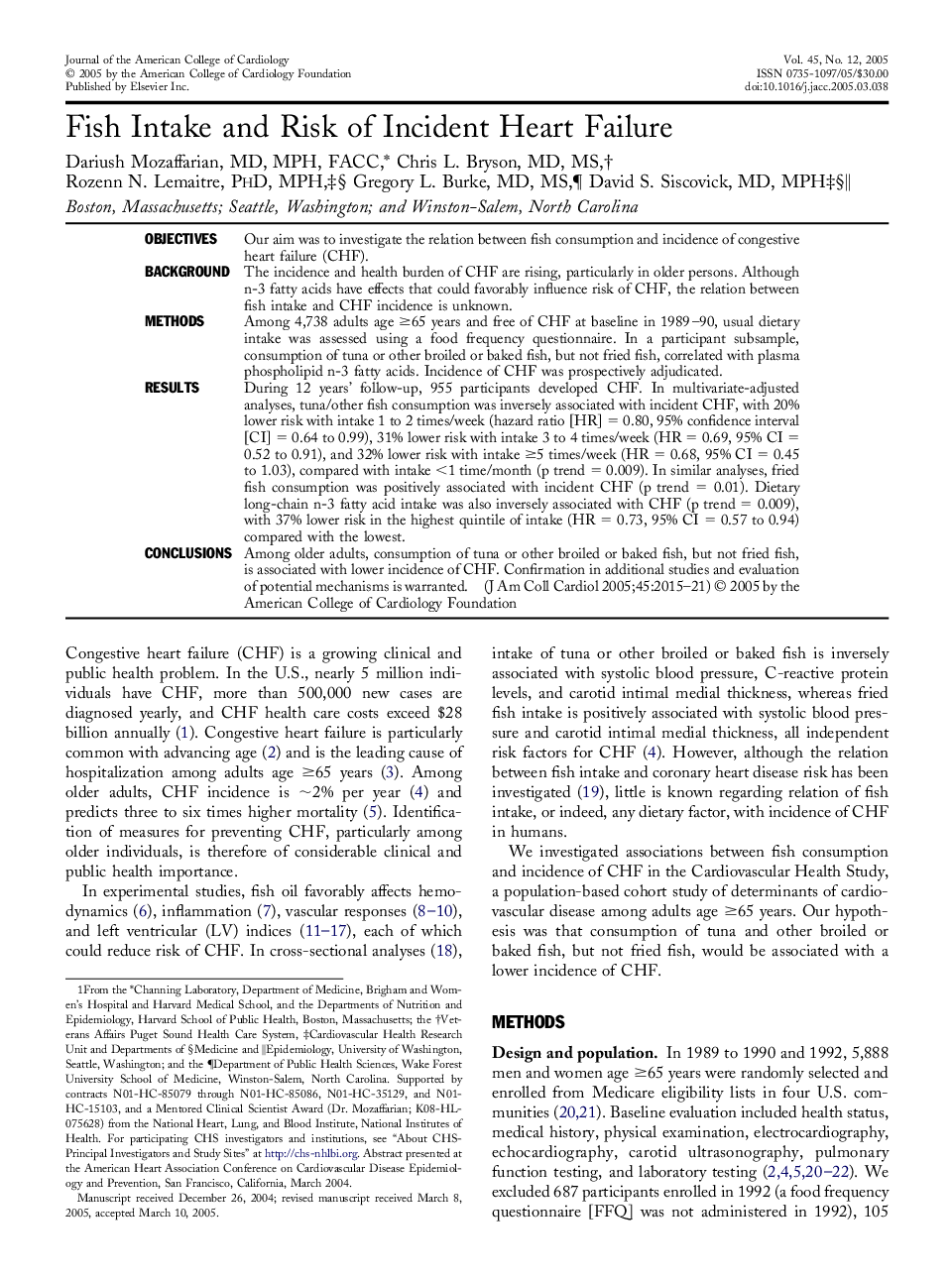| Article ID | Journal | Published Year | Pages | File Type |
|---|---|---|---|---|
| 2954522 | Journal of the American College of Cardiology | 2015 | 7 Pages |
ObjectivesOur aim was to investigate the relation between fish consumption and incidence of congestive heart failure (CHF).BackgroundThe incidence and health burden of CHF are rising, particularly in older persons. Although n-3 fatty acids have effects that could favorably influence risk of CHF, the relation between fish intake and CHF incidence is unknown.MethodsAmong 4,738 adults age ≥65 years and free of CHF at baseline in 1989–90, usual dietary intake was assessed using a food frequency questionnaire. In a participant subsample, consumption of tuna or other broiled or baked fish, but not fried fish, correlated with plasma phospholipid n-3 fatty acids. Incidence of CHF was prospectively adjudicated.ResultsDuring 12 years’ follow-up, 955 participants developed CHF. In multivariate-adjusted analyses, tuna/other fish consumption was inversely associated with incident CHF, with 20% lower risk with intake 1 to 2 times/week (hazard ratio [HR] = 0.80, 95% confidence interval [CI] = 0.64 to 0.99), 31% lower risk with intake 3 to 4 times/week (HR = 0.69, 95% CI = 0.52 to 0.91), and 32% lower risk with intake ≥5 times/week (HR = 0.68, 95% CI = 0.45 to 1.03), compared with intake <1 time/month (p trend = 0.009). In similar analyses, fried fish consumption was positively associated with incident CHF (p trend = 0.01). Dietary long-chain n-3 fatty acid intake was also inversely associated with CHF (p trend = 0.009), with 37% lower risk in the highest quintile of intake (HR = 0.73, 95% CI = 0.57 to 0.94) compared with the lowest.ConclusionsAmong older adults, consumption of tuna or other broiled or baked fish, but not fried fish, is associated with lower incidence of CHF. Confirmation in additional studies and evaluation of potential mechanisms is warranted.
